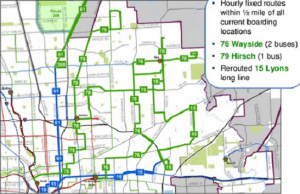In the Second installment of the 2014 Texas Leftist Candidate Questionnaire we hear from Ron Hale, candidate for the Texas State Senate, District 15. He is a Republican.
Please note: Responses have been received directly from the candidate, and have been posted ver batim from the email received. This is done out of fairness to all candidates. Publishing these responses does not constitute an endorsement, but will be considered during the endorsement process.
TL: What is your name, as it will appear on the ballot?
RH: Ron Hale
TL: Are you a current or former elected official? If so what office(s)?
RH: No.
TL: As a political candidate, you clearly care about what happens in certain levels of government. In your own words, why is government important?
RH: Government is important to the point of protecting the god given rights we are all given.
TL: If elected, name your top 3 priorities you hope to accomplish for 2015 legislative session. Describe how you plan to accomplish them.
RH: Property Tax Reform
Abolish property taxes and replace them with reformed state sales tax that includes an adjusted tax rate base.
Ideally, the reformed state sales tax would closely resemble the option with an 11% sales tax rate and an adjusted base that includes all services taxed in at least one other state, including the sale of property
Municipal Pension Reform
We have to fight to bring pension control back to our cities, so we do not have another Detroit situation on our hands.
Freeze enrollment in the current defined benefit system and enroll newly hired or unvested employees in a 401(k) style defined contribution pension plan.
Implement either a hard or soft freeze of the system for vested employees.
Replace current employee health care plans with Health savings accounts.
Education Reform
We must maintain our role as world leaders in educating our youth to be the workforce and future of our great State of Texas, and for America.
-
I believe in having options when it comes to school choice, and that our tax dollars should have the ability to follow each student to their selected school of choice.
-
There needs to be an end to standardized testing in Texas, and no longer should teachers be teaching an evaluation exam to students in order to achieve higher evaluation scores for that school.
-
We need to encourage corporations and small businesses to partner up with local schools in their area so that they may provide workforce training during high-school, ensuring our graduates will have better career training and job opportunities.
TL: A 2013 survey found that 54 percent of Texas voters support Medicaid Expansion under the Affordable Care Act. Expansion is also supported by the Texas Hospital Association. Without Medicaid Expansion or an alternate solution, Texas Hospitals are having to provide over $5 billion dollars annually in uncompensated care to patients who lack insurance. This leaves Texas taxpayers paying not only for the uncompensated care of our residents, but also paying for expanded health care benefits in other states. If elected, would you support Medicaid Expansion or an alternate solution for the state of Texas, so we can bring our tax dollars back where they belong? If not, please explain why. If so, please explain how you would work to pass such a measure.
RH: No I do not support Medicaid expansion. It is tax payer who fund Medicaid now and growth in the program means higher taxes. We need to figure out a way to lower health care cost in Texas to provide the best care possible and the lowest rates available.
TL: In the coming years, the state of Texas is projected to have a population boom of historic proportions. But with more people and more opportunities comes an ever-increasing strain on Texas roads and infrastructure. Describe your thoughts on what needs to be done to improve Texas infrastructure now so we can plan for a bright future for the state.
RH: We need to open the bidding process to more companies with the tools to complete the jobs. this will bring to light the ability of lower cost construction through competitive bidding.
TL: What makes you the best candidate for this office?
RH: My ability to work well with others and the will to do the right thing for Texas not matter what the issue.
TL: When not on the campaign trail, how do you like to spend your free time?
RH: Reading and watching the history channel. Also, spending time with my wife and the rest of my family.
Thanks to Mr. Hale for his participation.










